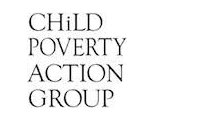
Child Poverty Action Group (CPAG) says Auckland Action Against Poverty’s (AAAP) recent Benefit Impact shows the welfare system is not meeting the needs of those who need it most. The system is marred by convolution, combined with a baffling system of tax credits called Working for Families which supports only some and leaves beneficiary families worse off. For some unfortunate families, the system is even punitive.
AAAP ran their annual benefit impact over three days last week in Mangere. Despite having more than 100 volunteers to help people get their correct payments, many who queued to be assisted had to be turned away. Around 650 low-income, struggling families were helped, but AAAP were overwhelmed by the level of need.
It is time to reject the common assumption that anyone on a benefit must be lazy or wastes money. On Waatea TV Darryl Evans, CEO of Mangere Budgeting Trust said, “There is no empathy for the poor in New Zealand,” and “ninety-five per cent of the families [they] help are good honest people” who want to be good parents, pay the rent and “put good healthy kai on the table.”
Since the 1991 benefit cuts, benefits have fallen conspicuously behind wages. As core benefits have been squeezed, extra supplementary payments from Work and Income have become more necessary. The criteria for these extra payments are complex, and the systems in place fail to explain these clearly, making it very difficult for people to understand their entitlements. Consequently, every year for the past four years AAAP have helped a growing number of families, and the number of food parcels distributed continues to escalate.
Child Poverty Action Group (CPAG) believes families shouldn’t have to rely on charity for basics such as food for their children.
AAAP’s Sue Bradford described how the current system saves money by imposing its complexities on welfare recipients by making the system too hard to understand. Furthermore Work and Income pays people less when they are in relationships, and may prosecute them when they are deemed to have been ‘overpaid’.
CPAG Economics spokesperson Susan St John says, “The use of relationship definitions to punish people must end,and people be enabled to gain much more from earning extra money. CPAG is campaigning for the Government to Fix Working for Families (FWFF). Merging the In-Work Tax Credit with the Family Tax Credit would give the worst-off families an additional $72.50 of income each week.”
This change would go a long way towards simplifying the system, Overnight it would make a powerful and positive difference to the lives of thousands of the children and their families.
For more information on CPAG’s Fix Working for Families campaign visit:





+100 – I just think of Kafka of the Kafkaesque situation we are in .. (from wiki)
Franz Kafka[a] (3 July 1883 – 3 June 1924) was a German-language writer of novels and short stories who is widely regarded as one of the major figures of 20th-century literature. His work, which fuses elements of realism and the fantastic,[3] typically features isolated protagonists faced by bizarre or surrealistic predicaments and incomprehensible social-bureaucratic powers,[4] and has been interpreted as exploring themes of alienation, existential anxiety, guilt, and absurdity.[5] His best known works include “Die Verwandlung” (“The Metamorphosis”), Der Process (The Trial), and Das Schloss (The Castle). The term Kafkaesque has entered the English language to describe situations like those in his writing.[6]
Interestingly Kafka worked in insurance…. obviously good training for his writing….
(Kafka) “Two weeks later he found employment more amenable to writing when he joined the Worker’s Accident Insurance Institute for the Kingdom of Bohemia. The job involved investigating and assessing compensation for personal injury to industrial workers; accidents such as lost fingers or limbs were commonplace at this time. The management professor Peter Drucker credits Kafka with developing the first civilian hard hat while employed at the Worker’s Accident Insurance Institute, but this is not supported by any document from his employer.[42][43] His father often referred to his son’s job as an insurance officer as a Brotberuf, literally “bread job”, a job done only to pay the bills; Kafka often claimed to despise it. Kafka was rapidly promoted and his duties included processing and investigating compensation claims, writing reports, and handling appeals from businessmen who thought their firms had been placed in too high a risk category, which cost them more in insurance premiums.[44] He would compile and compose the annual report on the insurance institute for the several years he worked there. The reports were received well by his superiors.[45]”
Comments are closed.